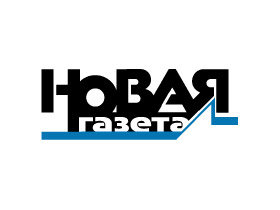STRASBOURG, March 28 – RAPSI, Ingrid Burke. The European Court of Human Rights (ECHR) held Thursday that Russia did not violate the freedom of expression rights of widely circulated Russian newspaper Novaya Gazeta and journalist Georgiy Borodyanskiy, who were convicted of libel over a 2006 story on the regional governor of Omsk.
Novaya Gazeta is a Russian daily newspaper with a circulation of approximately 500,000. Its editorial and publishing house filed the present claim, alongside its Omsk correspondent Borodyanskiy.
Borodyanskiy published an article in November 2006 alleging several fraud schemes in connection with the issuance of large unpaid bank loans. The article listed various individuals alleged to be involved in various capacities, including the Omsk regional governor and a Kazakh businessman. Importantly, the article stated with reference to the businessman’s success in the region, “It would be inconceivable for anyone to achieve such success in our region without the benevolence (благоволение) of the Governor.”
The following month, the governor sued the newspaper and Borodyanskiy for libel.
The Russian court held that the article was defamatory. The Russian judgment explained that under the country’s constitution, “protection of every citizen’s good name is guaranteed,” adding that under the Civil Code, a claimant in such cases is entitled to rectification “if the person who disseminated such statements can not prove their truthfulness.”
The court ordered Novaya Gazeta to publish a rectification of the damaging statements in its online and print editions, and to pay non-pecuniary damages and court fees. The total came out to 60,100 rubles.
Novaya Gazeta appealed the judgment, claiming that contested statements were subjective opinions, and thus not conducive to proof, and that it had not been duly notified of the date and time of the hearing.
The Omsk Regional Court upheld the judgment on appeal, finding that the article contained defamatory language insofar as the word “benevolence” implied the governor’s approval of the purported fraud schemes. Further, the appellate court found that the defendants had been afforded ample notice of proceedings.
Afterward, Novaya Gazeta published rectifications in its online and print editions and paid the governor 60,100 rubles.
In its judgment, the ECHR considered the relevant articles on defamation and press freedom under the Russian Constitution: “Article 23 guarantees protection of private life, privacy of personal and family affairs, good name and honour. Article 29 protects freedom of thought and expression, together with freedom of the mass media.”
It further notes that the Russian Civil Code offers the right to recourse for statements “damaging to [one’s] honour, dignity or professional reputation if the person who disseminated such statements does not prove their truthfulness.”
The Russian Supreme Court issued a decree in 2005 clarifying the defamation law for lower courts, noting in part the importance of distinguishing statements of fact, which are actionable under the law, from “evaluative judgments, opinions and convictions,” which are not.
Novaya Gazeta and Borodyanskiy turned to the ECHR claiming that the libel proceedings had violated the rights of both to free expression, as guaranteed by Article 10 of the European Convention on Human Rights.
The Article states in relevant part: “1. Everyone has the right to freedom of expression. This right shall include freedom to hold opinions and to receive and impart information and ideas without interference by public authority ... 2. The exercise of these freedoms, since it carries with it duties and responsibilities, may be subject to such formalities, conditions, restrictions or penalties as are prescribed by law and are necessary in a democratic society ... for the protection of the reputation or rights of others ...”
Before the ECHR, Novaya Gazeta and Borodyanskiy maintained that the statements on the governor and his “benevolence” were value judgments, not statements of fact, and thus were not conducive to proof.
The Russian government defended its conduct based on the policy goal of protecting individual rights and reputations, adding that even if “benevolence” could be cast as a value judgment, its use constituted a failure of “good faith” for lack of verification and supporting evidence.
The ECHR noted that while free expression is imperative, rights to it are not absolute. In limiting free expression rights, a national government must provide a compelling justification.
On balancing the interest of free expression with other interests, the judgment asserted its own overarching authority: “The primary responsibility to balance restrictions on freedom of expression rests with the competent national authorities, but it remains subject to the Court’s scrutiny whether the conduct of the national authorities is compatible with their engagements under the Convention.”
The ECHR noted that in general, freedom to one’s opinion is consistent with free expression rights. The judgment added, however, that the line between fact statements and value judgments can be easily blurred, especially when the two approaches are merged. Specifically, it may be difficult to draw that line when opinions on one person cross wires with allegations regarding a third party.
The ECHR adds that it is incumbent upon reporters not to fall into the trap of yellow journalism: “While enjoying the protection afforded by the Convention, journalists must, when exercising their duties, abide by the principles of responsible journalism, namely to act in good faith, provide accurate and reliable information, objectively reflect the opinions of those involved in a public debate, and refrain from pure sensationalism.”
Good faith is imperative in this regard, according to the judgment, which states: “even a value judgment without any factual basis to support it may be excessive.”
In light of these considerations, the ECHR upheld the Russian judgments, concluding: “In these circumstances the Court accepts the conclusion of the domestic courts that the insertion of a comment regarding “benevolence” of a public official towards certain business interests participating in large-scale fraudulent schemes suggested at least some degree of involvement by Mr P. in these schemes and, therefore, have harmed his reputation.”
Accordingly, the ECHR found no violation of the applicants’ Article 10 free expression rights.



